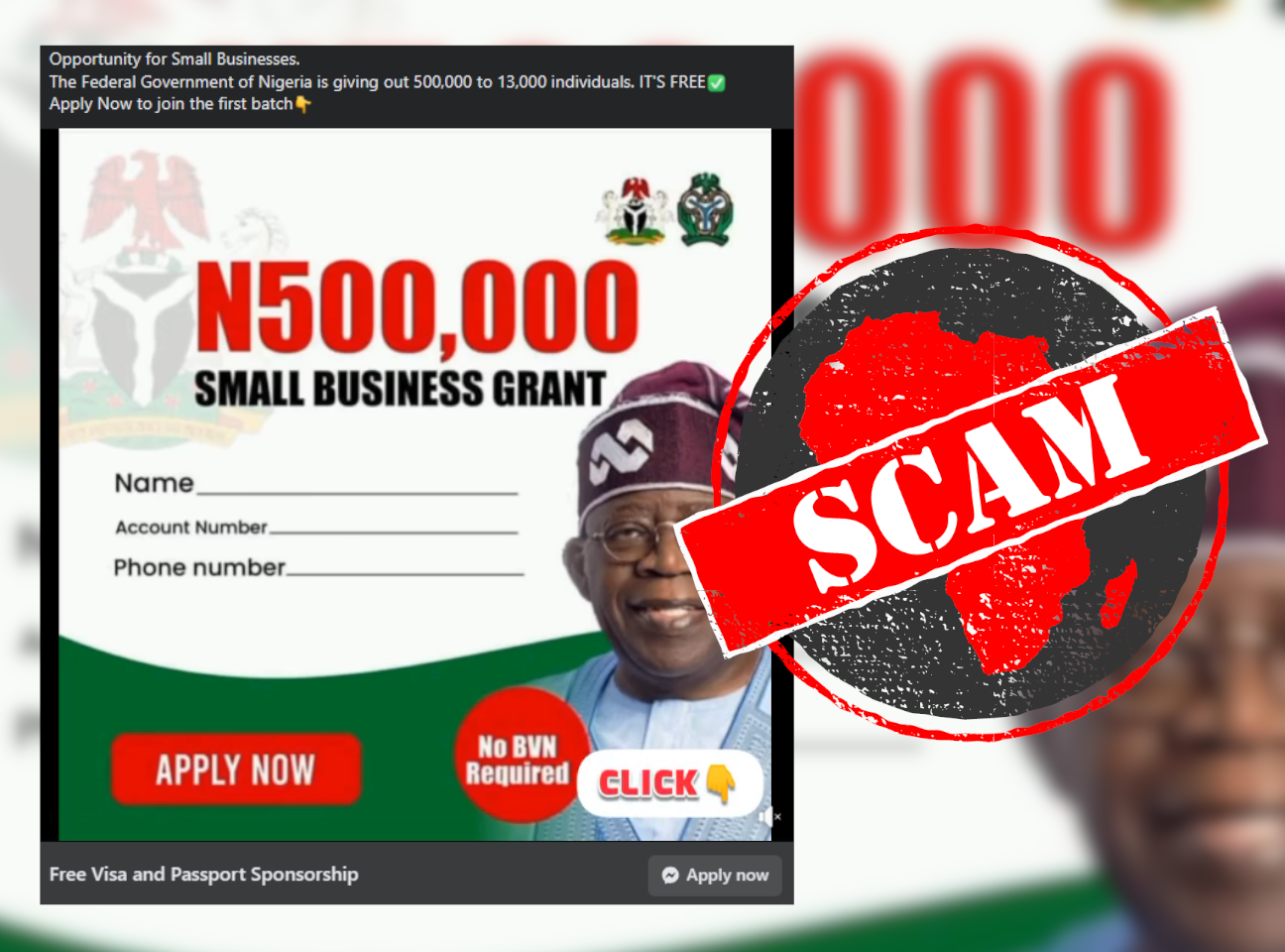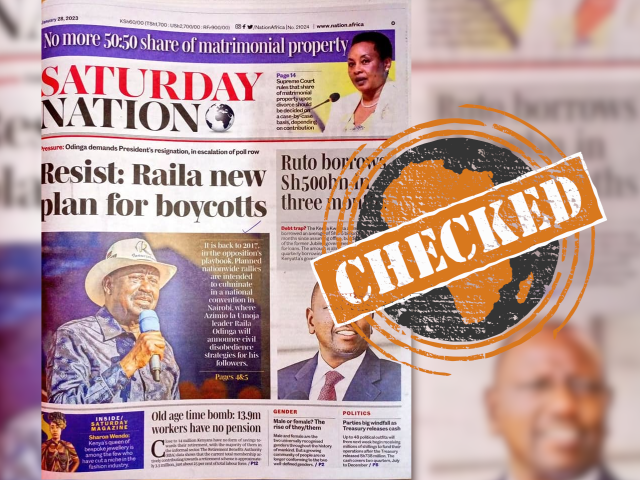IN SHORT: Given the tough economic times Nigeria is facing, small businesses in the country would welcome any financial support from the government. But claims that the government is giving N500,000 (about US$400) to 13,000 small businesses are false.
“Opportunity for Small Businesses. The Federal Government of Nigeria is giving out 500,000 to 13,000 individuals. IT’S FREE,” reads a Facebook post, dated 27 March 2024.
The post contains a link and an image of Nigerian president Bola Tinubu with the text “N500,000 small business grant”.
Nigeria is facing its worst economic crisis in decades, with many small businesses struggling to keep their doors open.
The same post has also been published on Facebook here, here, here, here, here, here, here, here and here.
But is the Nigerian federal government handing out N500,000 (about US$400) to 13,000 small businesses? We checked.

Engagement bait scam
Clicking on the “Apply Now” button leads users to the poster’s inbox. We showed interest and were sent links to websites about Canadian jobs and visas.
We insisted that we were only interested in the government funding for small businesses, as advertised in the post, and not Canadian jobs. But the account kept sending the same links.
This is an example of engagement bait, asking people to like, share or comment to increase the reach of the post, but offering no real reward. These posts are also aimed at directing traffic to the websites.
We also couldn't find any reports about the N500,000 government funding in credible news outlets.
Africa Check has debunked similar claims here, here and here.
To protect yourself from scams on Facebook, read our guide.
Republish our content for free
For publishers: what to do if your post is rated false
A fact-checker has rated your Facebook or Instagram post as “false”, “altered”, “partly false” or “missing context”. This could have serious consequences. What do you do?
Click on our guide for the steps you should follow.
Publishers guideAfrica Check teams up with Facebook
Africa Check is a partner in Meta's third-party fact-checking programme to help stop the spread of false information on social media.
The content we rate as “false” will be downgraded on Facebook and Instagram. This means fewer people will see it.
You can also help identify false information on Facebook. This guide explains how.





Add new comment